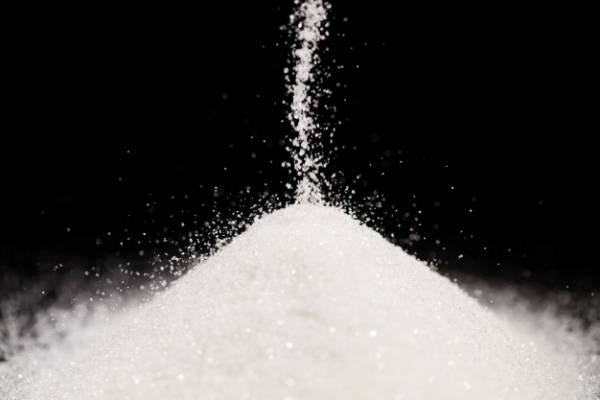Adverse EffectsAspartame; A High-Risk Artificial Sweetener
Aspartame is a very low-calorie artificial sweetener and one of the most popular sugar substitutes in low-calorie foods and drinks, includingSoft Drinksdiet sodas. Aspartame is also used in some medications.
Despite its widespread use and popularity, there have been discussions and studies in recent years about whether aspartame has adverse side effects. In this section of healthSelMagzwe will address the latest evidence concerning the safety of aspartame and how it may affect weight, appetite, and certain medical conditions:

How Safe is Aspartame?
In 2013, the European Union conducted hundreds of studies regarding the safetyof foodand the effects of aspartame, concluding that aspartame is safe for humans with an acceptable daily intake of 40 milligrams per kilogram of body weight.
The FDA considers a consumption amount 10 milligrams higher than that of the EU, yet the established amounts are still far greater than what most people typically consume in a day.

Aspartame’s Effects on Weight:
Aspartame contains 4 calories per gram, similar to sugar, but is about 200 times sweeter than sugar. This means that only a small amount of aspartame is enough to sweeten foods and drinks. That is why people commonly use it in theirweight lossdiets.
However, according to the latest research from 2017, there is no evidence that low-calorie sweeteners like aspartame, sucralose, and steviol glycosides affect body weight.
Some studies monitored participants over several years and found a connection betweenweight gainand waist circumference with the regular use of these sweeteners.
Participants in some studies also showed an increase in body mass index (BMI). BMI can help evaluate if a person has a healthy weight.
Individuals with a high BMI may be more likely to develop metabolic diseases, and furthermore, the 2017 study indicated that those who regularly consume sweeteners could be more at risk for heart diseases,diabetesandstrokes.

Aspartame’s Effects on Appetite:
A common question users have from the health section of SelMagz is about the impact of aspartame on appetite and weight gain. One way that aspartame and other non-nutritive sweeteners may affect body weight is by increasing a person’s appetite, leading them to consume more food.
A 2013 review mentions several studies on animals that show a connection between regular consumption of non-nutritive sweeteners and increased food intake.
This review indicates that sweeteners disrupt the signaling process that usually occurs with the consumption of calorie-rich foods, thereby increasing appetite.
Sweet tastes generally signal the body that food is entering the intestine, and then the body expects to receive calories and signals that should end with a feeling of fullness when eating. When consuming sweeteners, the person experiences the same sweet taste, but the body receives fewer calories than expected.
If this happens regularly, the body may fail to understand the connection between sweet tastes and calories. This inversion means that calorie-rich foods no longer trigger a feeling of fullness and may lead to overeating.

Aspartame’s Effects on Metabolism:
According to the 2013 review, the same mechanism that disrupts appetite control could expose a person to certain metabolic diseases such astype 2 diabetesbecause the body no longer expects to receive calories in response to sweet tastes. From this perspective, it could be equipped to cope with dietary sugars as they enter the intestine.
Another review in 2016 discusses more about the link between low-calorie sweeteners and metabolic disorders, indicating that regular and long-term use of sweeteners may disrupt the balance and diversity of gut bacteria.
Animal studies suggest that this type of imbalance can lead to glucose intolerance, which is a risk factor for type 2 diabetes.
A study in 2016 examined the effects of certain sugars and sweeteners on people’s glucose tolerance. Researchers found a link between aspartame consumption and increased glucose intolerance among overweight individuals, yet none of the sugars and sweeteners tested had a negative impact on healthy-weight participants.
These studies suggest that regular aspartame consumption could increase the risk of glucose intolerance, especially in those who are overweight.

Other Associated Risks:
News reports for decades have claimed that aspartame causes or increases the risks, some of which include:
- Headaches
- Dizziness
- Seizures
- Depression
- Attention Deficit Hyperactivity Disorder (ADHD)
- Alzheimer’s Disease
- Multiple Sclerosis
- Cancer
- Lupus
- Congenital Disabilities

Who Should Avoid Aspartame?
Individuals with the following conditions should avoid consuming aspartame:
1- Phenylketonuria:
Phenylketonuria is a hereditary metabolic disorder that raises the level of the essential amino acid known as phenylalanine in the blood. Since individuals with this condition cannot metabolize phenylalanine properly, they should avoid consuming food and drinks containing aspartame.
Phenylalanine is one of the three compounds that make up aspartame; however, aspartame exists in minor amounts in daily food sources such as meats, fish,eggsand dairy products.
2- Tardive Dyskinesia:
Tardive dyskinesia is a neurological disorder that causes sudden and uncontrollable twitching movements in the face and body. This disorder often appears as a result of long-term use of antipsychotic medications. Some studies have shown that phenylalanine may exacerbate the symptoms of this disorder.

Some Products Containing Aspartame:
Many foods and drinks labeled as “sugar-free” may contain some form of artificial sweetener. The products below are likely to contain aspartame:
- Diet Soft Drinks
- Chewing Gum
- WaterCandySugar-Free
- Sugar-Free Ice Cream
- Low-Calorie Yogurt
- Low-Calorie Fruit Juice
Drug manufacturers also use aspartame to produce certain medications. Examples include laxatives and gummy vitamin supplements.

Alternatives to Aspartame:
Those who want to limit their aspartame intake can use the following alternatives:
- Honey
- Maple Syrup
- Agave Nectar
- Stevia Leaves
- and Beet Syrup
While the above list is preferable to consuming aspartame, be mindful to use them in moderation as they can also contain high calories or lack nutritional value, which can lead totooth decayif consumed excessively.

Other Notes:
- Despite the affirmed safety of aspartame, there is still much debate about it.
- Scientific evidence indicates that regular and long-term consumption of aspartame and other low-calorie sweeteners may have negative effects on weight management.
- There is little evidence that occasional consumption of aspartame is harmful for those who are maintain a healthy weight.
- However, for individuals who are overweight, regular intake of low-calorie sweeteners may increase the risk of developing metabolic diseases, including type 2 diabetes.







